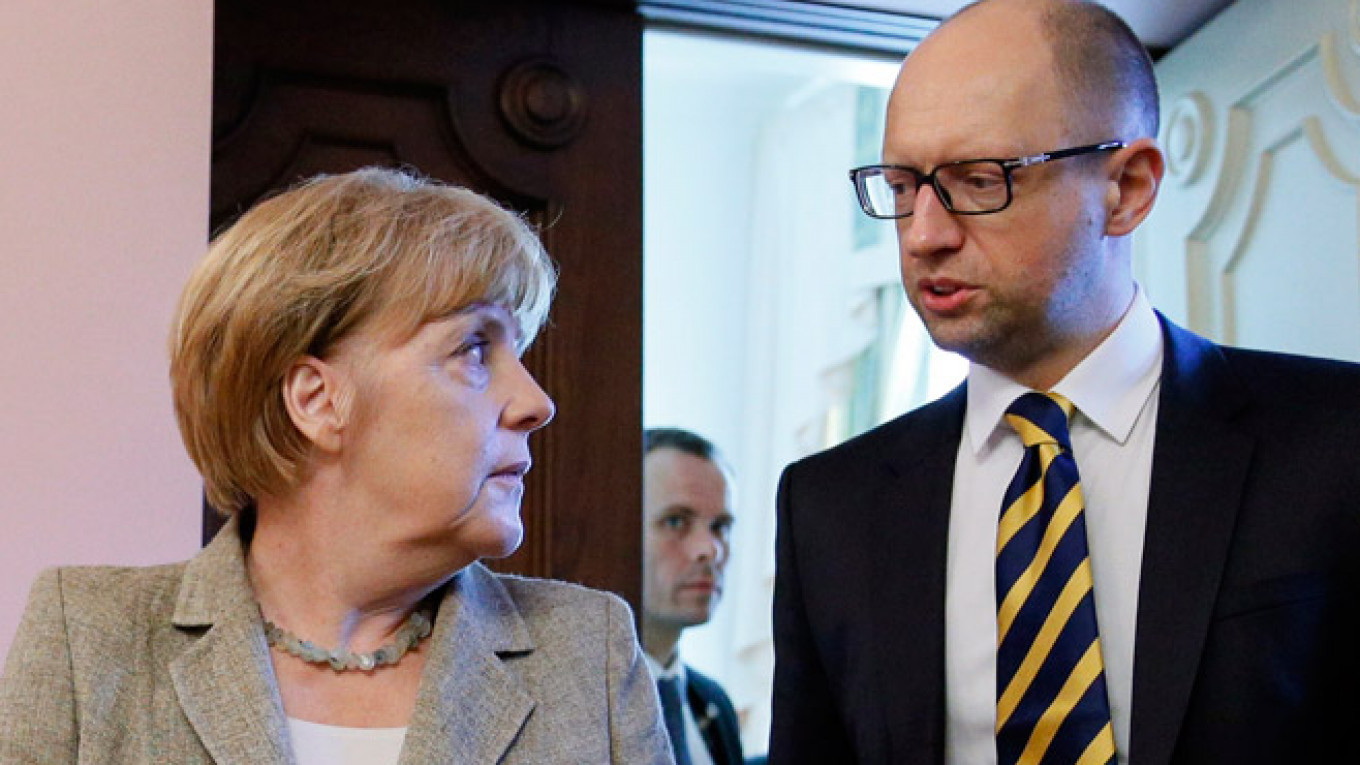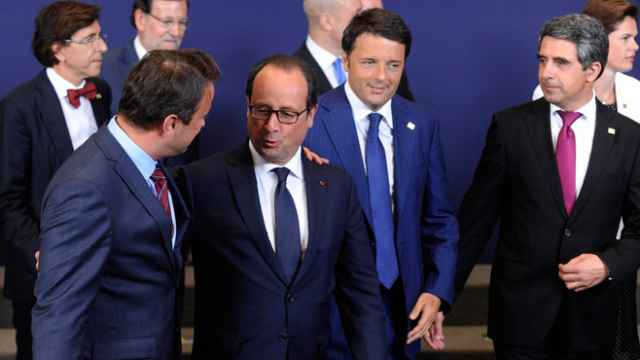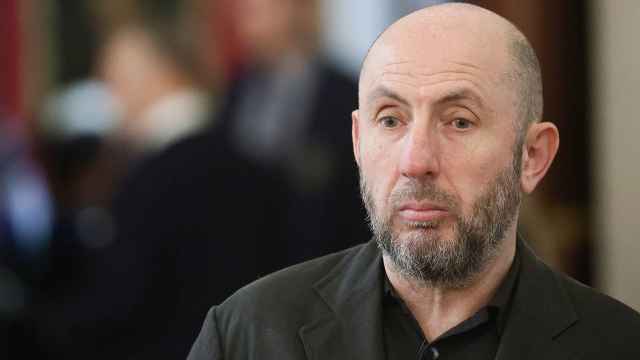BERLIN — One in three German companies expect business with Russia to decline sharply this year as a result of economic sanctions imposed due to the Ukraine crisis, a German business lobby group said Tuesday.
About a third of 300 companies surveyed by the German Chamber of Commerce, or DIHK, saw their turnover declining by up to 50 percent, the German-Russia Foreign Trade Chamber, or AHK, said, while nearly two-thirds expected steady or even improved business with Russia.
Germany is Russia's biggest trading partner in the European Union and sold about 36 billion euros of goods to Russia last year — almost a third of the EU's total.
Sanctions and the impact on confidence of the crisis in Ukraine were cited by the Finance Ministry last month as a reason for the surprise economic contraction seen in Germany, the eurozone's biggest economy, in the second quarter.
"The innovative German machinery makers and engineering companies, mostly medium and small businesses, are being hit the hardest," said Volker Treier, deputy managing director of the DIHK, at a news conference. He said he expects German exports to Russia to fall by about 20 percent in 2014.
"On the one hand, they are being directly hurt by the sanctions imposed by the European Union or due to lacking clarity about how they should be implemented. On the other hand Russian firms that placed the orders are facing higher financing costs due to a credit crunch and ruble's devaluation."
But Treier said sanctions have not yet had an impact on many German firms, adding: "It's still business as usual for many."
The survey also found that 80 percent of German companies doing business in Russia believe the sanctions imposed are either not effective or an inappropriate tool for pursuing a political resolution to the crisis.
"We are not convinced that long term goals can be achieved with the sanctions," said Rainer Seele, president of the German-Russia Foreign Trade Chamber. "But they seem to be a means to get all parties back to the negotiating table."
One third of the companies said the sanctions were necessary even if they were hurting their own businesses. Two-thirds said the sanctions were superfluous.
There are some 6,200 German firms active in Russia with 20 billion euros invested. Russia is Germany's 11th-biggest commercial partner and about 300,000 jobs depend on trade with Russia.
Germany was long reluctant to impose sanctions on Russia after it annexed Crimea in March, in part due to its powerful business lobby. Western nations first targeted President Vladimir Putin's closest allies and businessmen with sanctions.
They expanded those sanctions, with Germany taking a stronger position on sanctions, in late July to include the energy, banking and defense sectors. Russia has reacted with restrictions on imports of Western products.
Partly as a result, Europe's largest economy shrank by 0.2 percent between April and June after growing 0.7 percent in the first quarter.
A Message from The Moscow Times:
Dear readers,
We are facing unprecedented challenges. Russia's Prosecutor General's Office has designated The Moscow Times as an "undesirable" organization, criminalizing our work and putting our staff at risk of prosecution. This follows our earlier unjust labeling as a "foreign agent."
These actions are direct attempts to silence independent journalism in Russia. The authorities claim our work "discredits the decisions of the Russian leadership." We see things differently: we strive to provide accurate, unbiased reporting on Russia.
We, the journalists of The Moscow Times, refuse to be silenced. But to continue our work, we need your help.
Your support, no matter how small, makes a world of difference. If you can, please support us monthly starting from just $2. It's quick to set up, and every contribution makes a significant impact.
By supporting The Moscow Times, you're defending open, independent journalism in the face of repression. Thank you for standing with us.
Remind me later.






